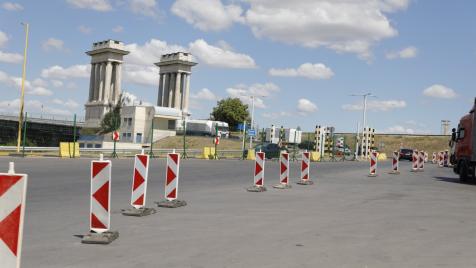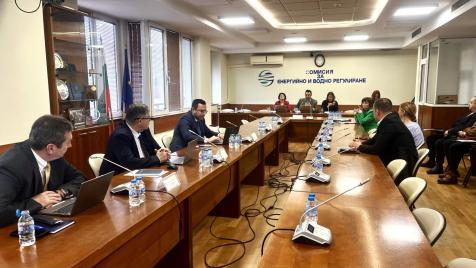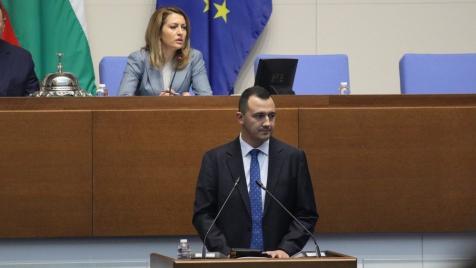“Status quo budget”: The business accuse the government of lying
With the proposed financial framework for 2026, the government is sending a message that Bulgarian and foreign investors are not welcome

Even after Thursday's meeting between employer organizations and GERB leader Boyko Borissov, tensions between the government and business remain high. In a new statement to the media, the AOBR, which brings together the four nationally represented employer organizations – KRIB, BIA, AIKB, and BCCI – directly accuses the government of lying when it claimed that the 2026 budget would not raise taxes and social security contributions.
Particularly disappointing for Bulgarian society are the forgotten multiple promises made by those who proposed the unacceptable draft budget – not to raise taxes, not to increase public debt, and to optimize administration," the employer organizations write in their open letter.
According to them, the opposite is happening – "the public is being offered a budget of the status quo, a complete lack of promising reforms and direct harm to people in the real sector – over three-quarters of all workers."
They even predict that "the economy will collapse" if Bulgarian enterprises (small, medium, and large) are drained rather than supported by a predictable and stable economic, political, and social environment.
The social consequences are easily predictable. We insist on the full restoration of social dialogue and respect for the work of all those employed in the real sector, rather than actions that take away their income – this is the statesmanlike and balanced care for our society!" the AOBR statement adds.
Earlier today, GERB leader Boyko Borisov told reporters in parliament that business is a "golden goose" and dialogue with it is important. He also stated that the "distortions" in this year's budget will not be present next year.
As organizations representing 82% of all employees in the country and producing 86% of the added value, we are outraged by statements in the National Assembly regarding our positions on the proposed draft budget of the country," the business community writes.
It reminds politicians that the budget is filled with funds generated by Bulgarian companies and salaries paid by these companies.
"When this is not enough and deficits are incurred, governments burden our country with loans. The fiscal contribution of all production in the country, in the form of direct and indirect taxes, supports the state administration, law enforcement agencies, the judiciary, including members of parliament. The attacks on those who produce, prompted by their opinion on the draft budget, are an insult to the companies that create value and dutifully pay all their fiscal obligations."
Unacceptable statements
Businesses see such statements as a refusal to engage in dialogue, a denunciation of cooperation between social partners, and something that destroys all economic prospects.
"We understand that every investor, whether Bulgarian or foreign, is not welcome, even though it is the real sector that pays the salaries of civil servants, which are, incidentally, consistently higher than those in the real sector. With this draft budget, money is taken monthly from every person working in the real sector, entrepreneur, employee, worker – from 10 to over 100 leva, which will go towards an even larger second increase in the salaries of all those on the state payroll – by at least 5%, and for some by 15%. Salaries whose increase in the previous year exceeded 50% for some categories."
Energy support
Comments are also made on the statements by Yordan Tsonev ("DPS-New Start") and Boyko Borisov, who stated that in recent years, businesses have received sufficient assistance from the state in relation to electricity prices, and now it is time for them to repay this service by agreeing to an increase in the tax and social security burden.
"As far as 'business aid' is concerned, the more than BGN 10 billion paid as a 'social responsibility fee' between 2010 and 2020 by Bulgarian companies to the energy sector to subsidize privileged industries is conveniently ignored. These funds could have been invested in production assets and wage increases, instead of lining someone's pockets. In addition to this, businesses and all non-residential consumers were overcharged, through high electricity prices, by over BGN 11 billion, of which part was returned to EVERY non-residential consumer, including hospitals, schools, kindergartens, community centers, municipal and state institutions, and even Parliament, as well as businesses (regardless of size), a little over BGN 6 billion, with the difference remaining in the energy sector.
"Let us recall that this was also a common European policy in accordance with EU state aid rules, precisely in order to preserve the economy of the Union. Similar support was provided in all EU countries, on a much larger scale, through various mechanisms and for a much longer period of time. The effect of the support was that many industries survived, tens, if not hundreds, of thousands of jobs were preserved, exports, which are a key element of economic growth, were maintained, and all this together guaranteed the incomes of workers, and stabilised revenue for the treasury, which was redistributed to government agencies and the civil service," the statement added.
Translated with DeepL.

 Georgi Zhelyazkov
Georgi Zhelyazkov 




